Tickets: £15
£10 (Students, NHS, Universal Credit)
Presented by Next Stage Theatre Company
Monday 27th June - Saturday 2nd, 7.30pm
"Tonight is the future. Powerful women. Hellbent on winning." – Matty, Act 2 Sc 13.
1869.
An amphitheatre in Islington, London. Showtime.
Self-styled impresario Professor Charlie Sharp invites you to a contest, a battle no less, to find the very first Lady Boxing Champion of the World.
It is a competition, born in the gutter, but with a prize fund worth winning, a small fortune that could change the lives of any likely contender.
Enter four very different Victorian women - nurse, Lady, prostitute and pit brow lass, each with a life they are desperate to improve.
Controlled by men and constrained by corsets, each finds an unexpected freedom in the boxing ring. But at what cost?
As the lives of our heroines begin to intertwine, their journey takes us through grand drawing rooms, bustling theatres and rowdy Southwark pubs where the women fight inequality as well as each other. And as the final fight approaches, who will be the winner?
The Sweet Science of Bruising is an epic tale of passion, politics and pugilism, a blistering tale of female empowerment, solidarity and fury.
This amateur production is by arrangement with Nick Hern Books.
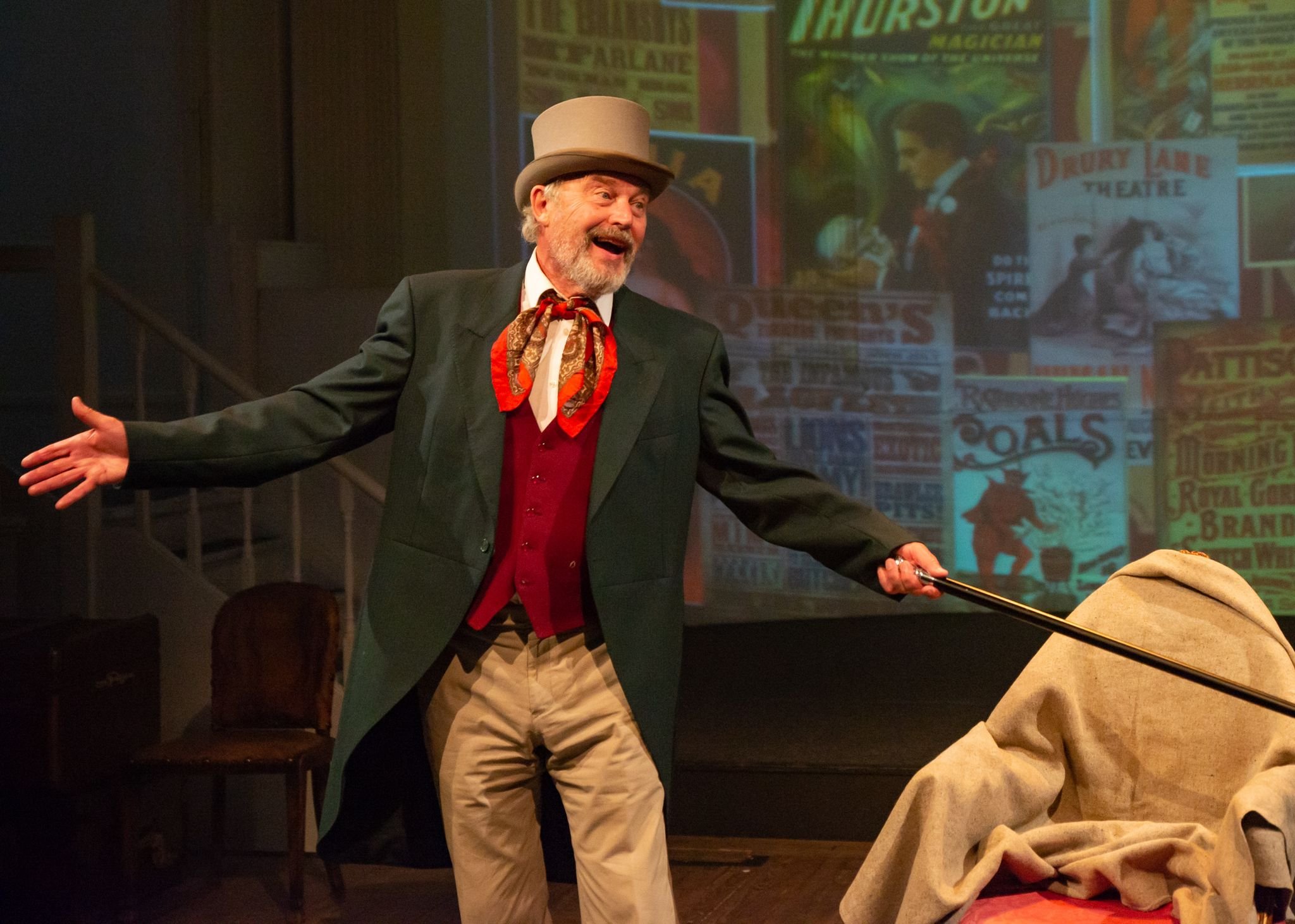
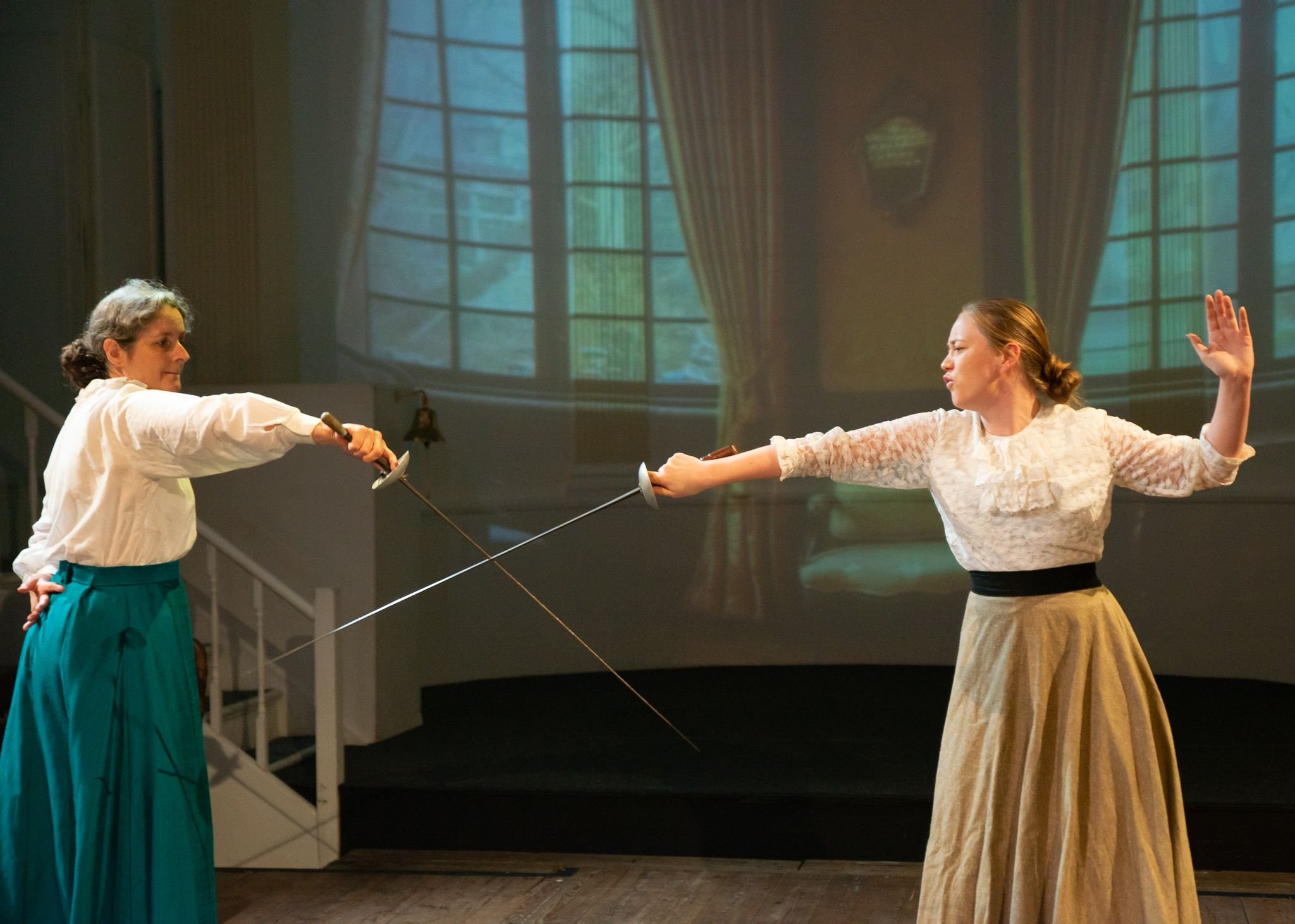
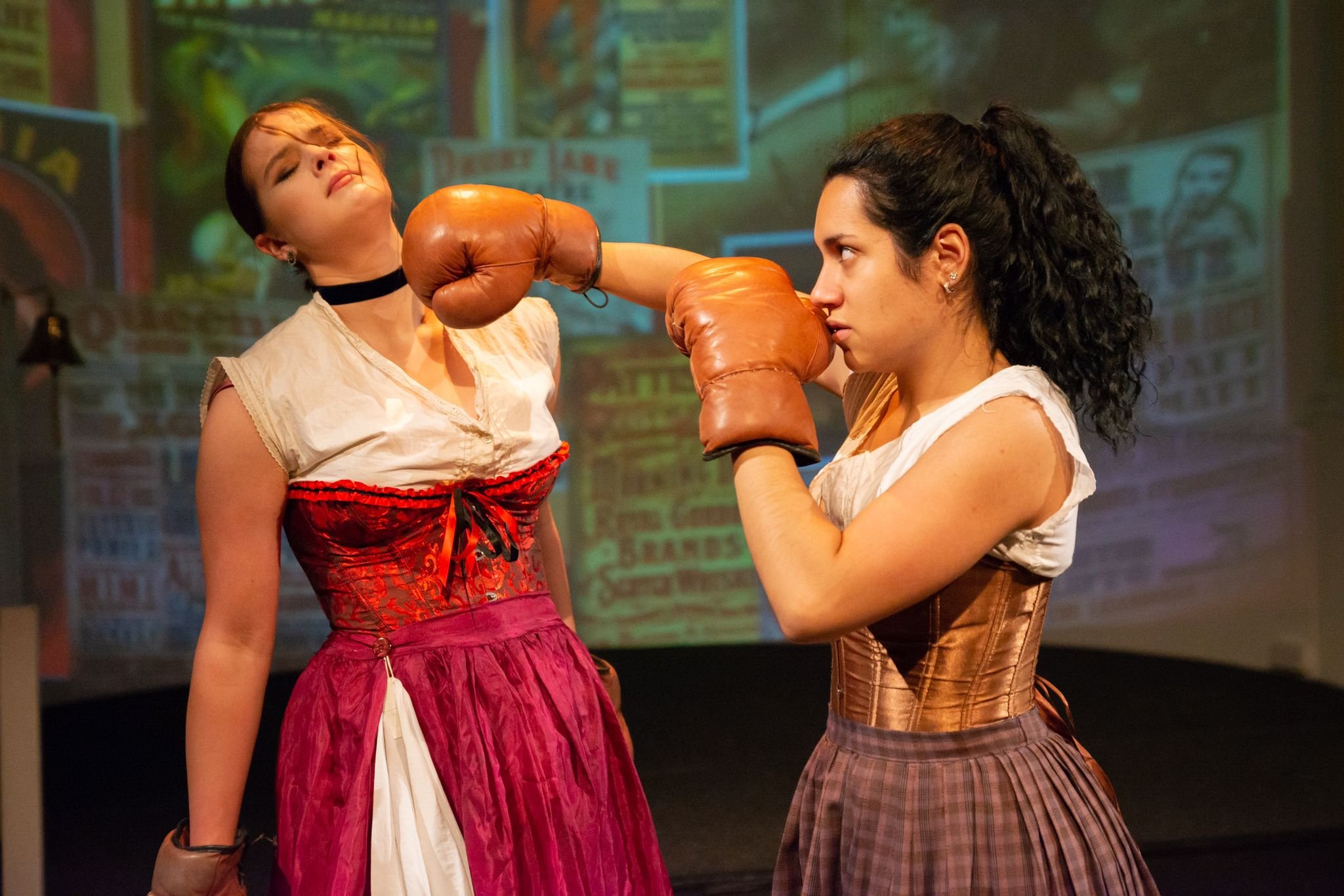
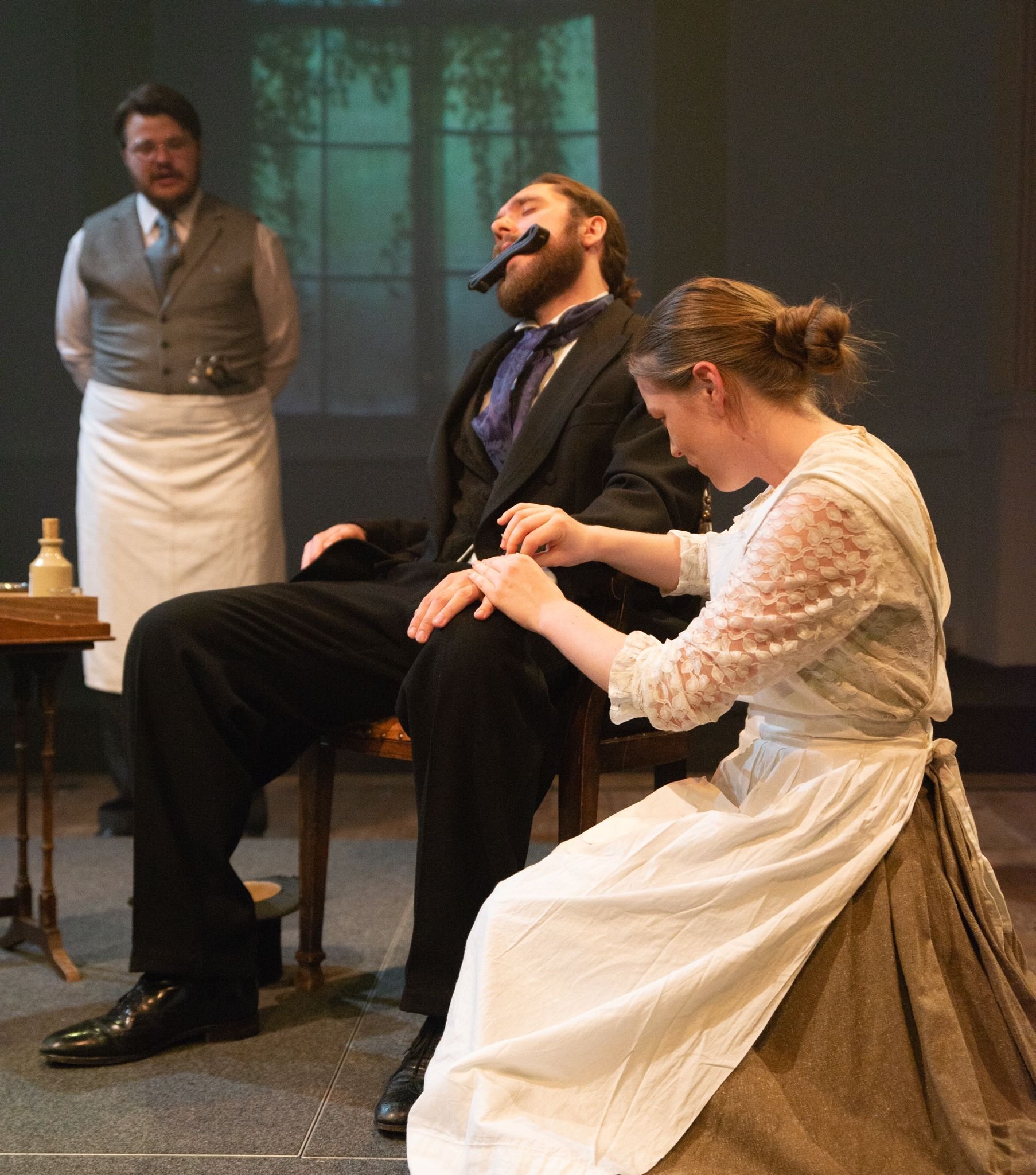
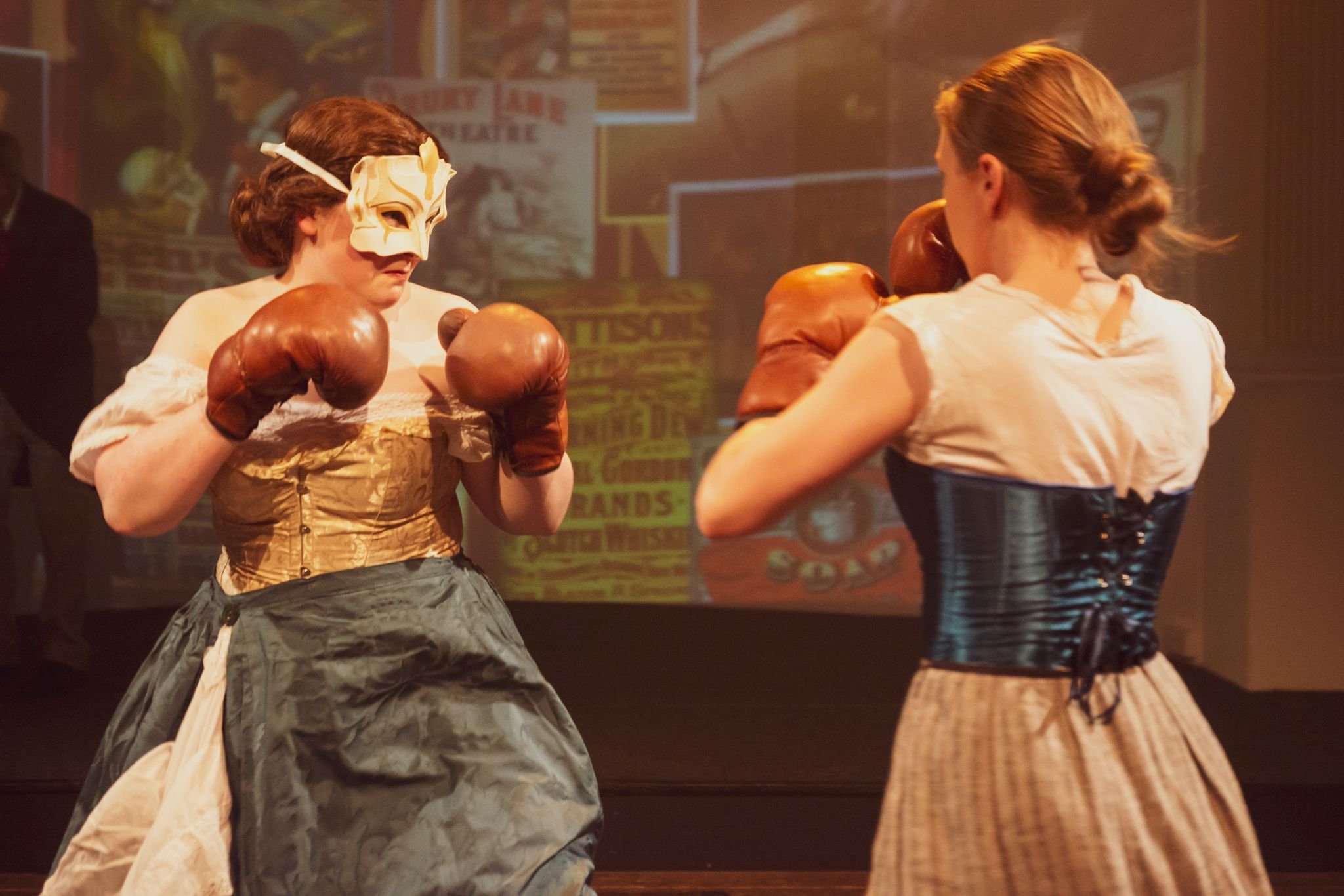
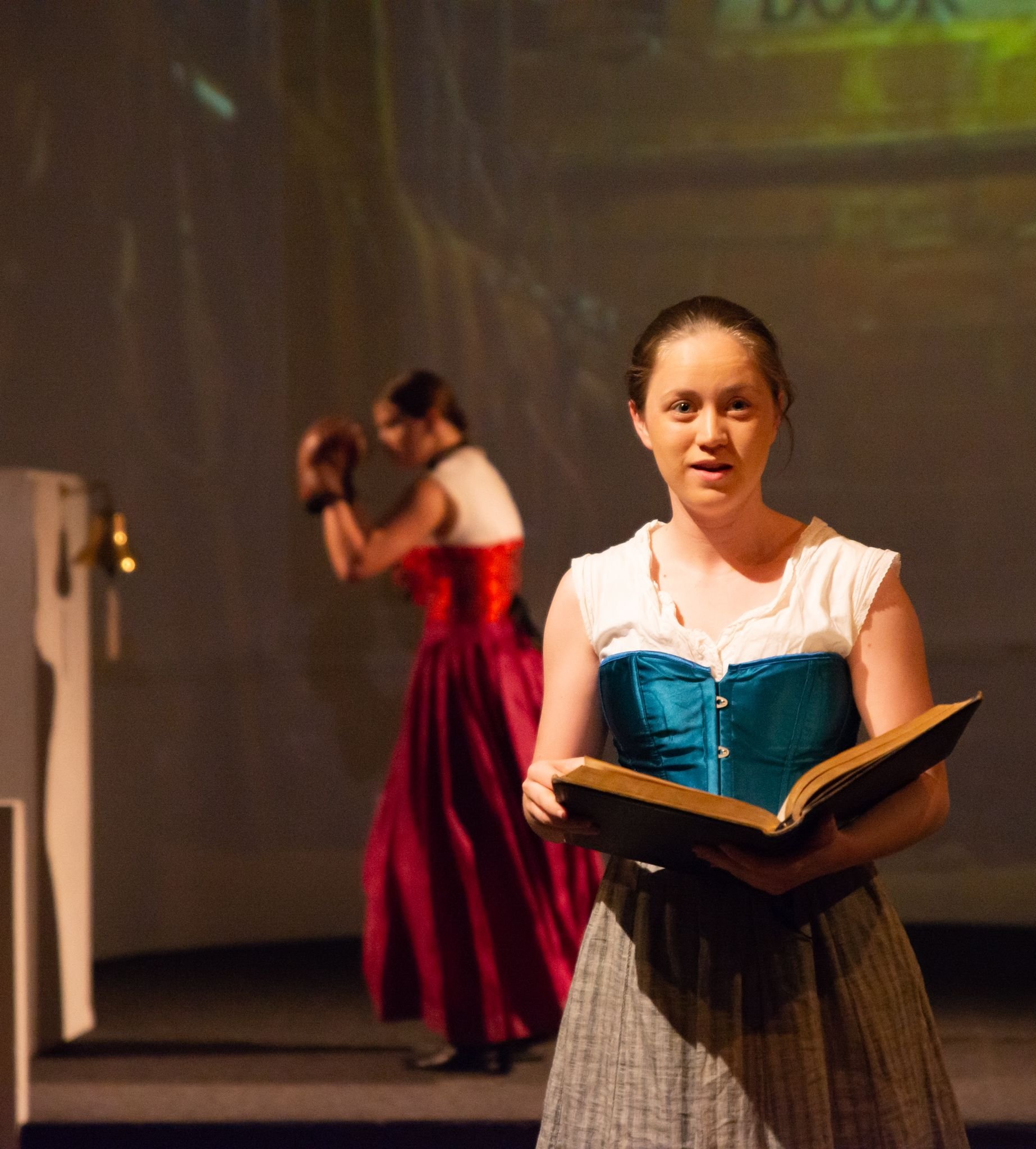
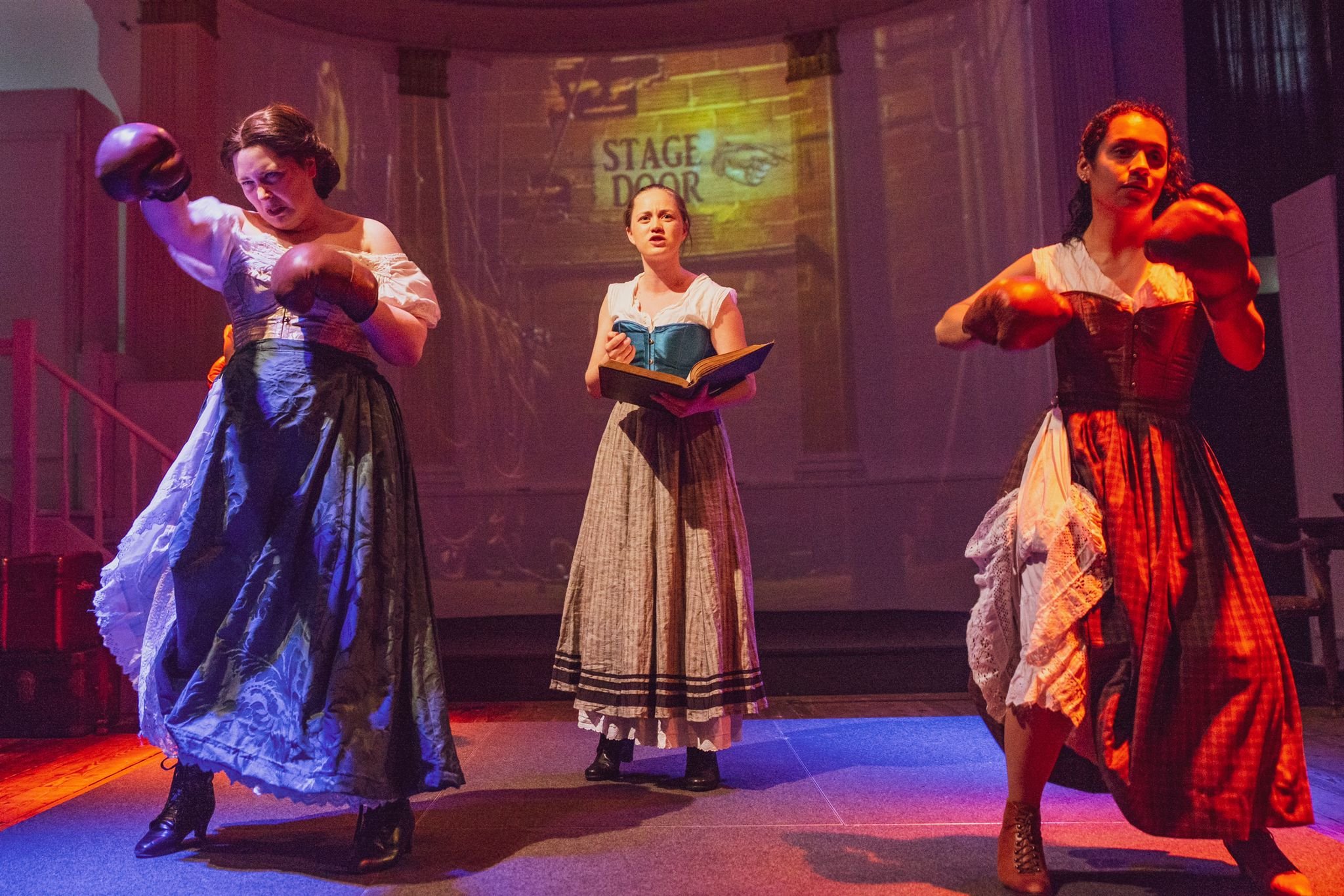
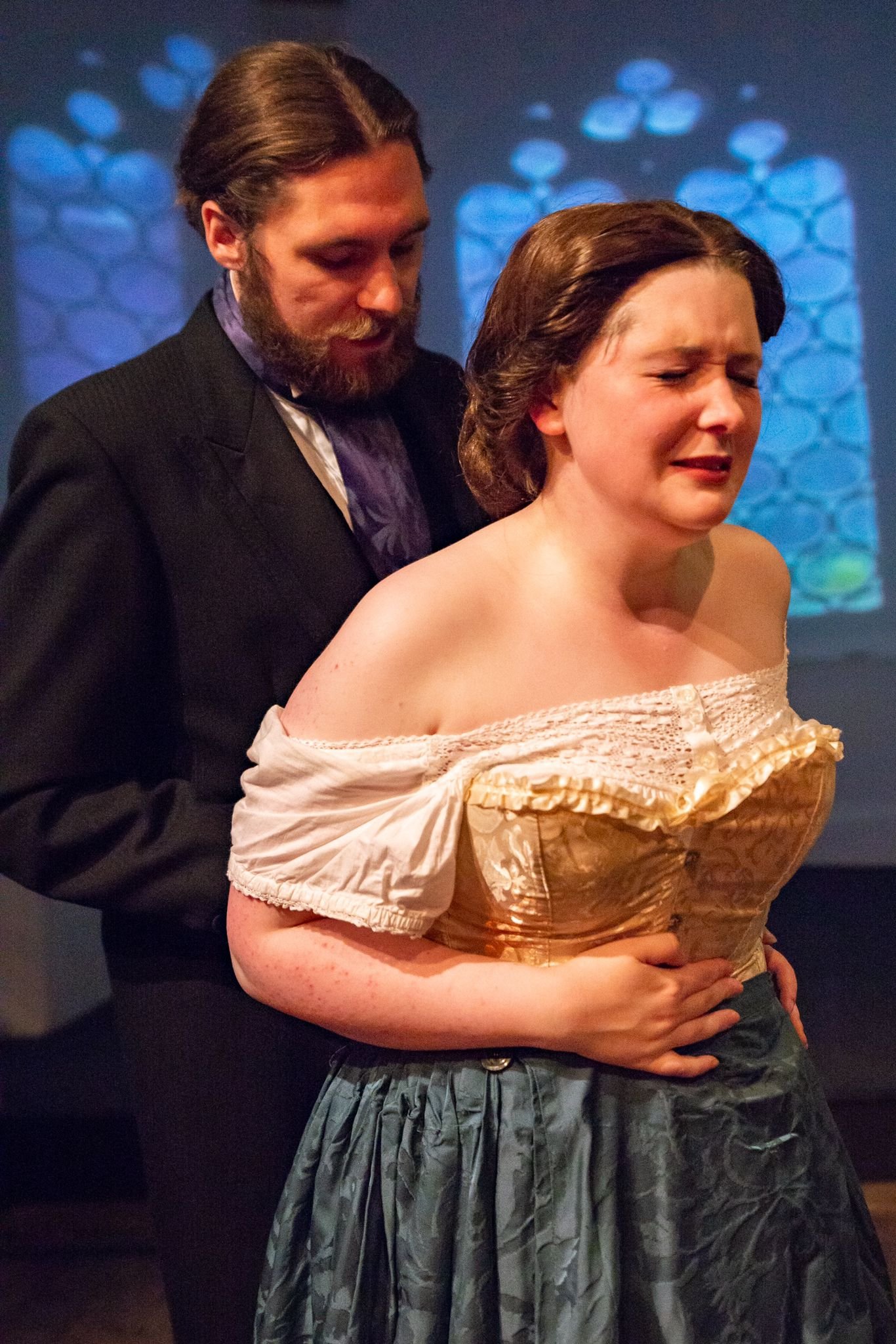
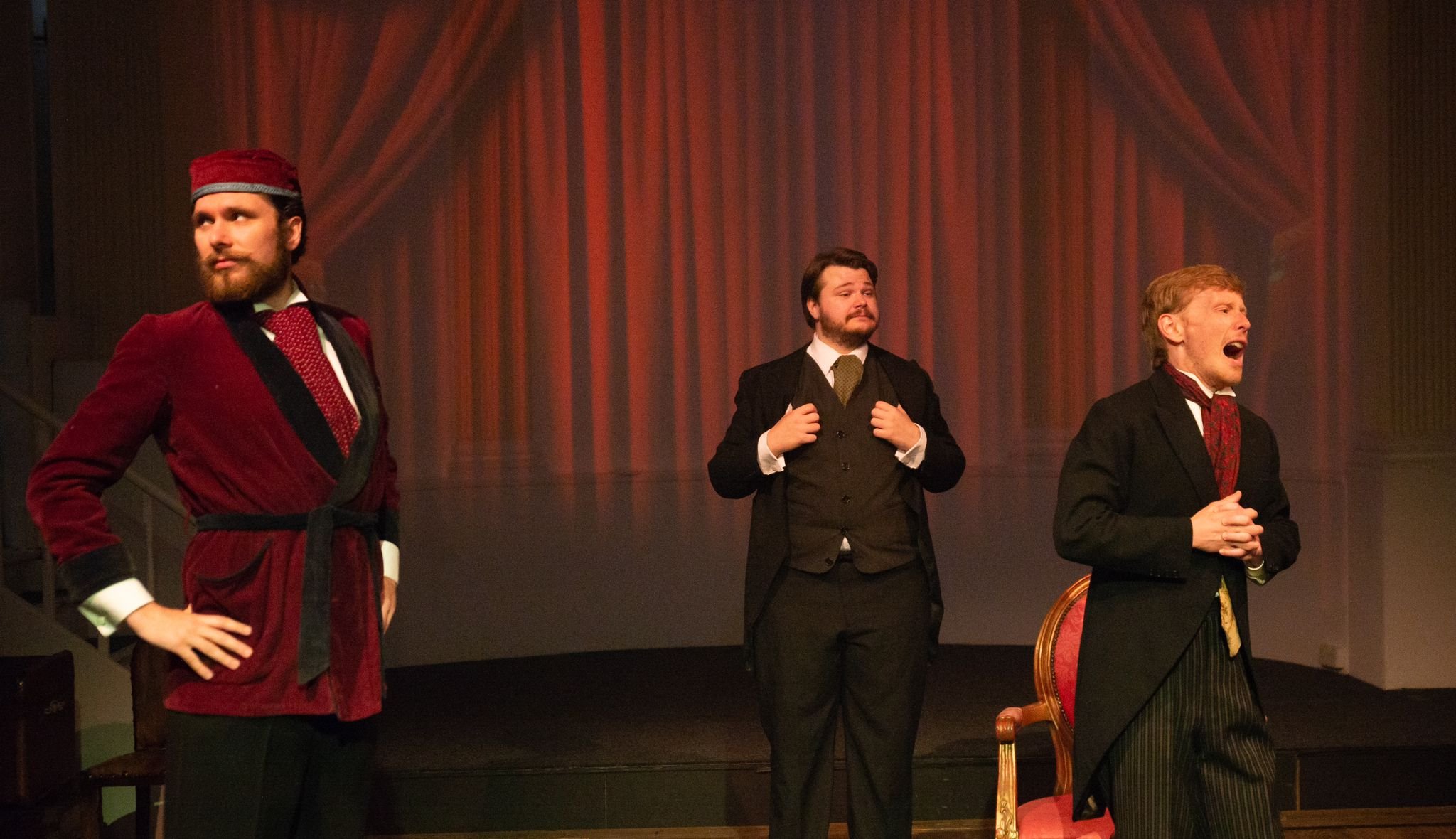
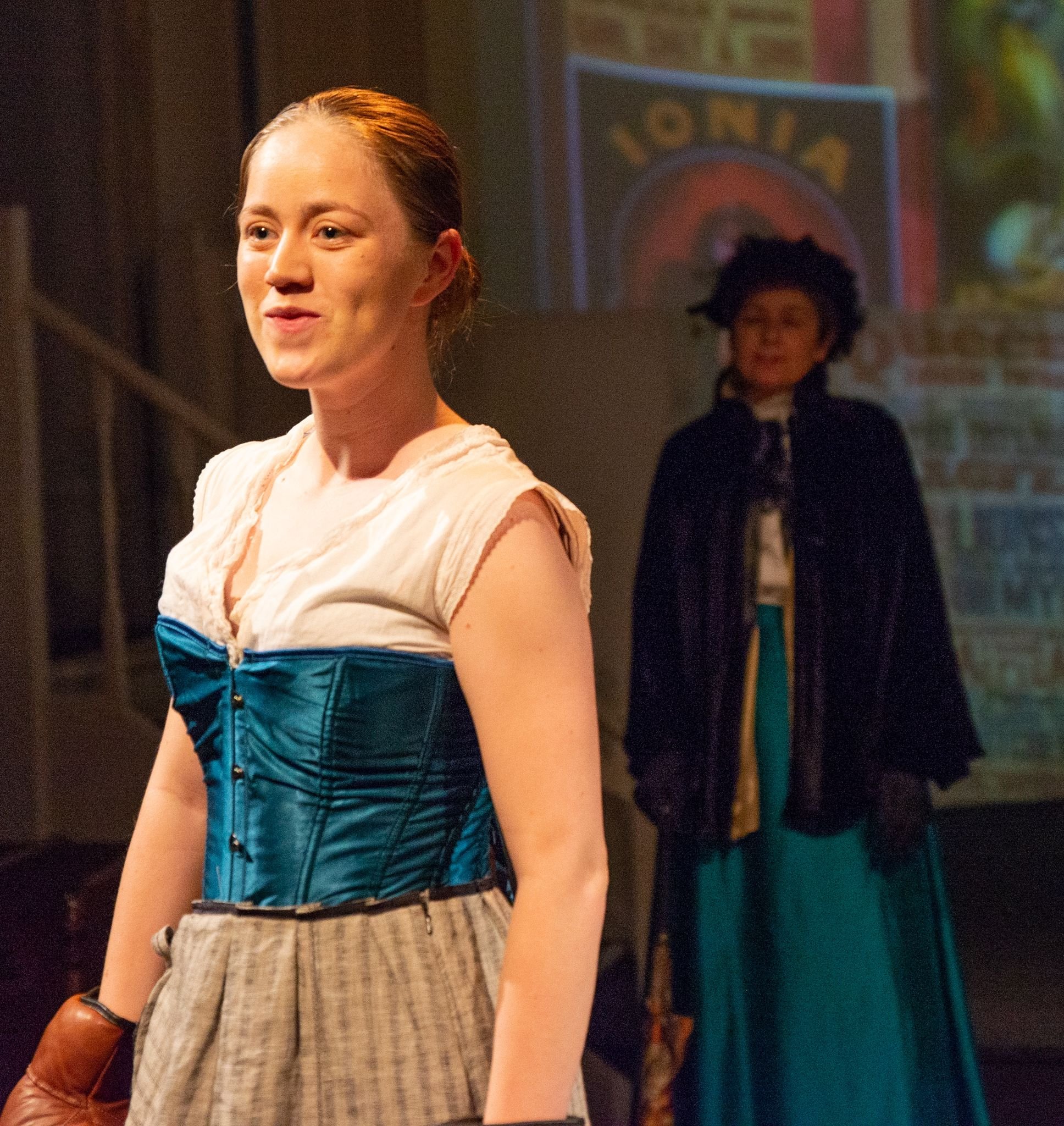
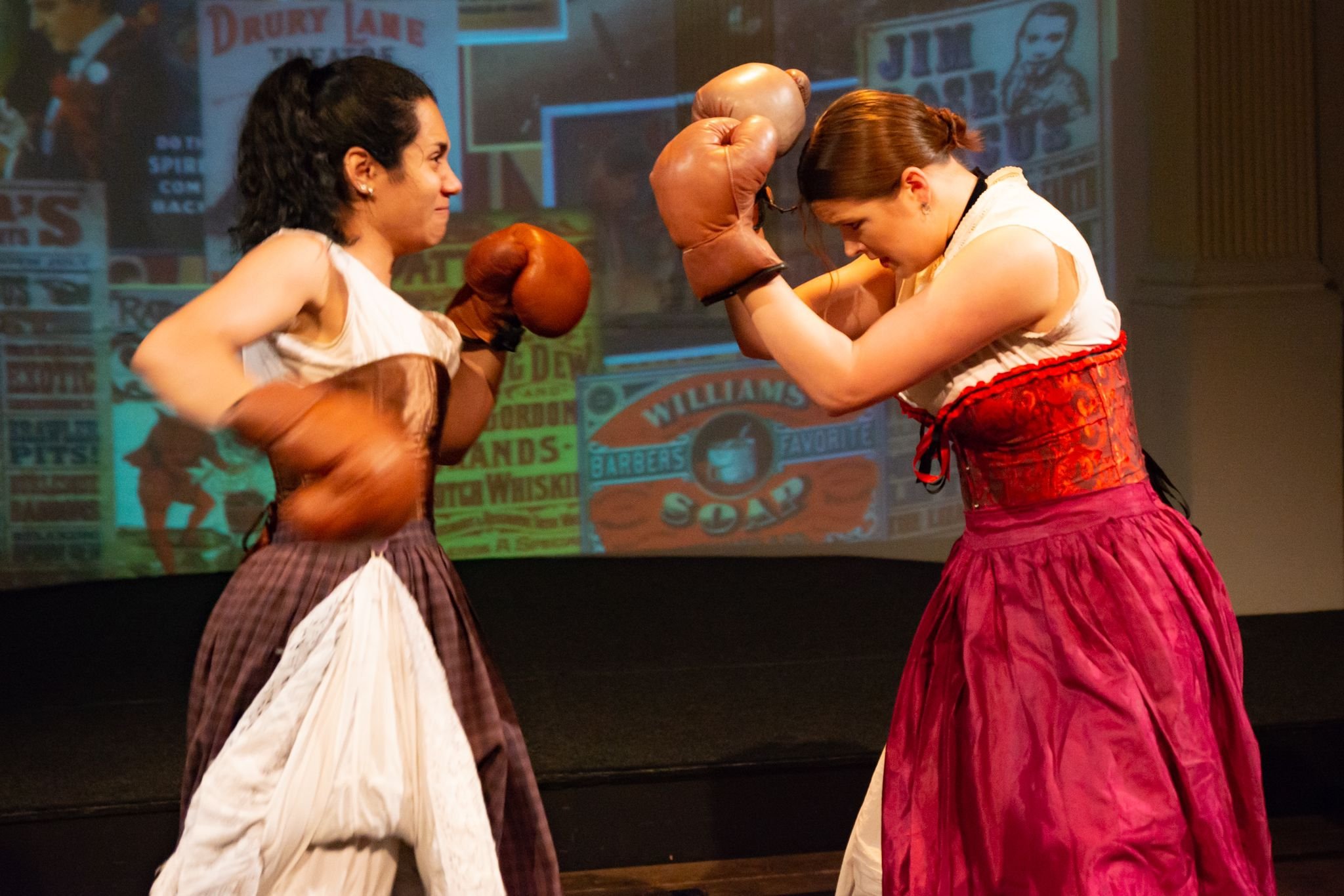
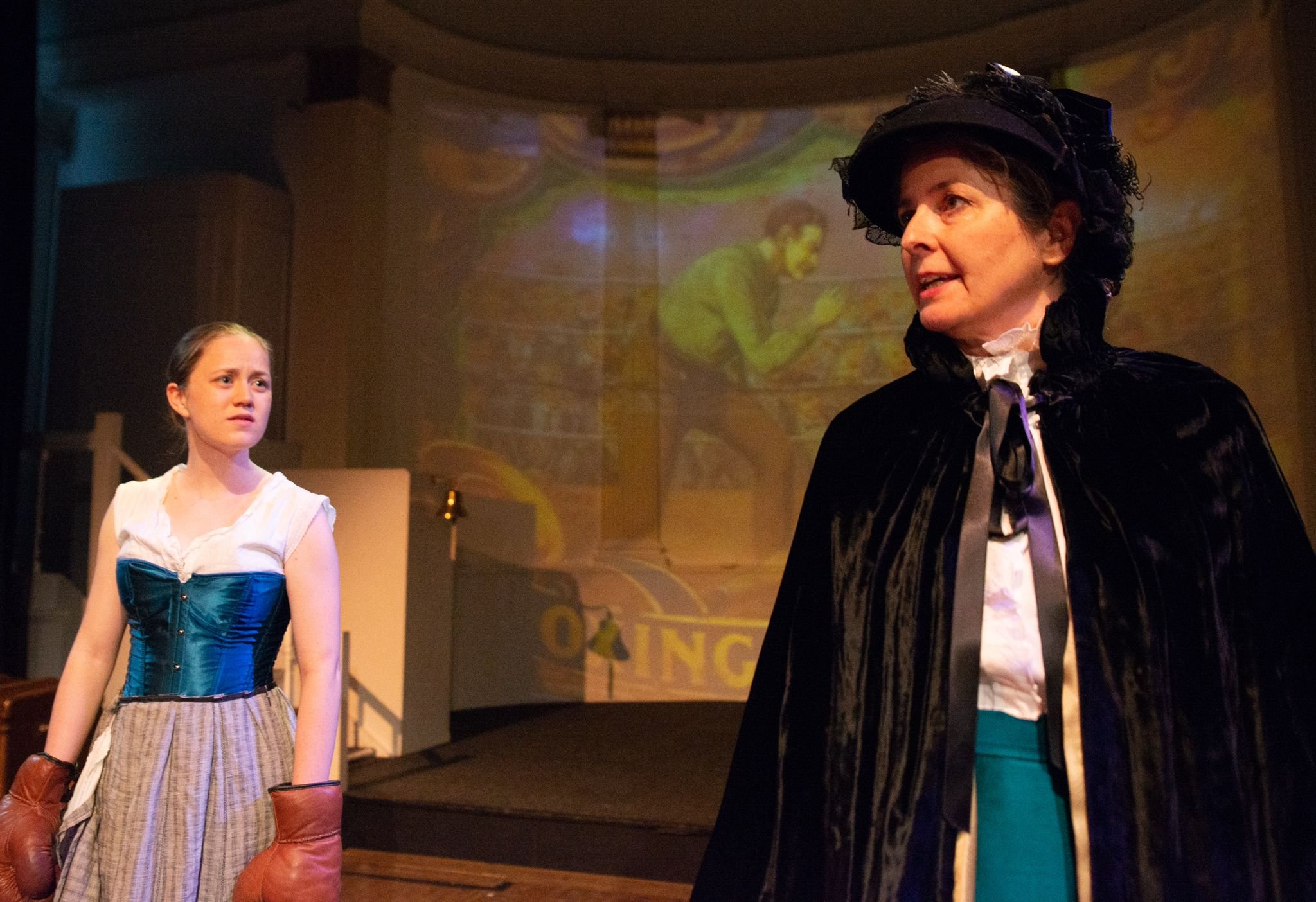
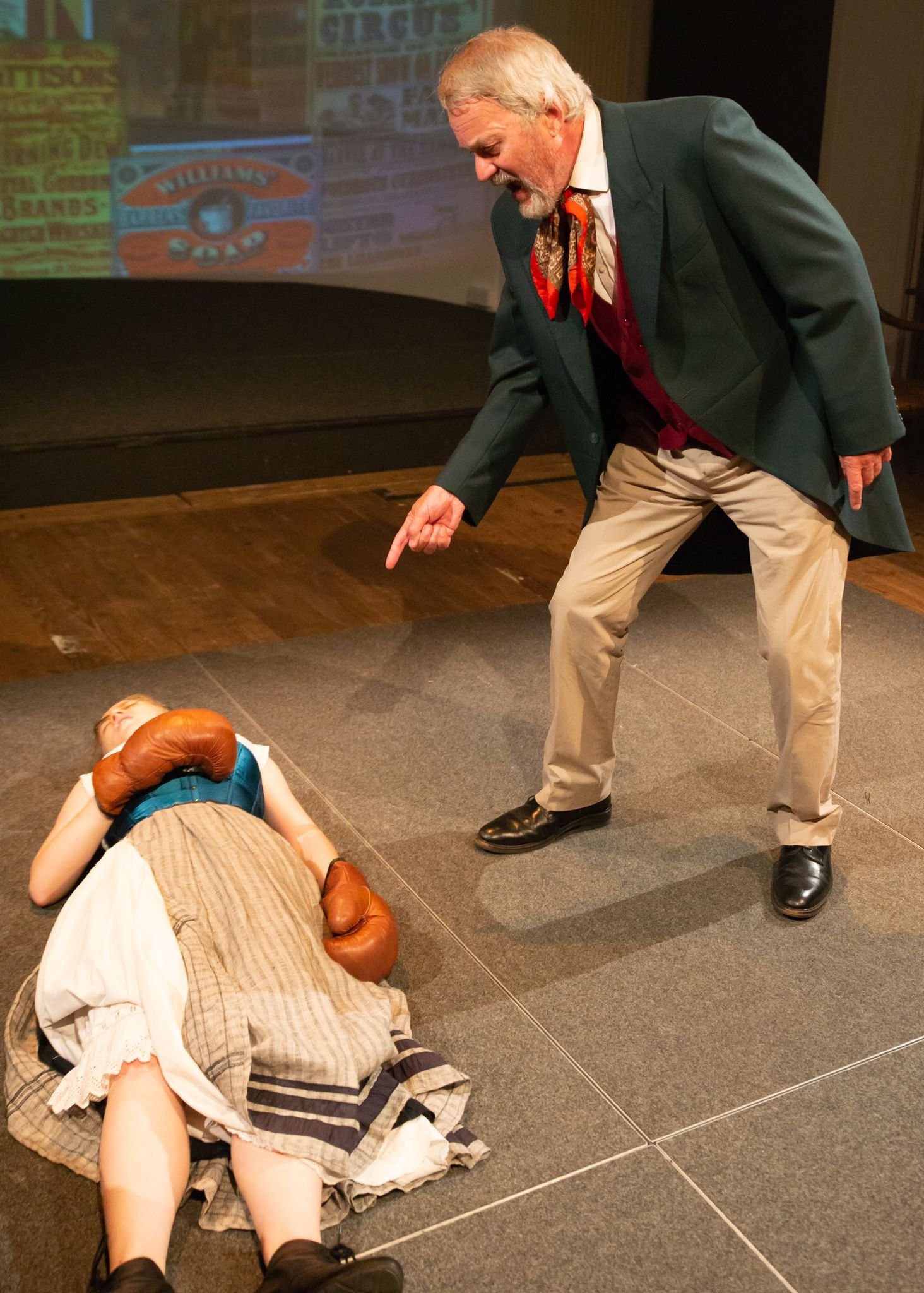
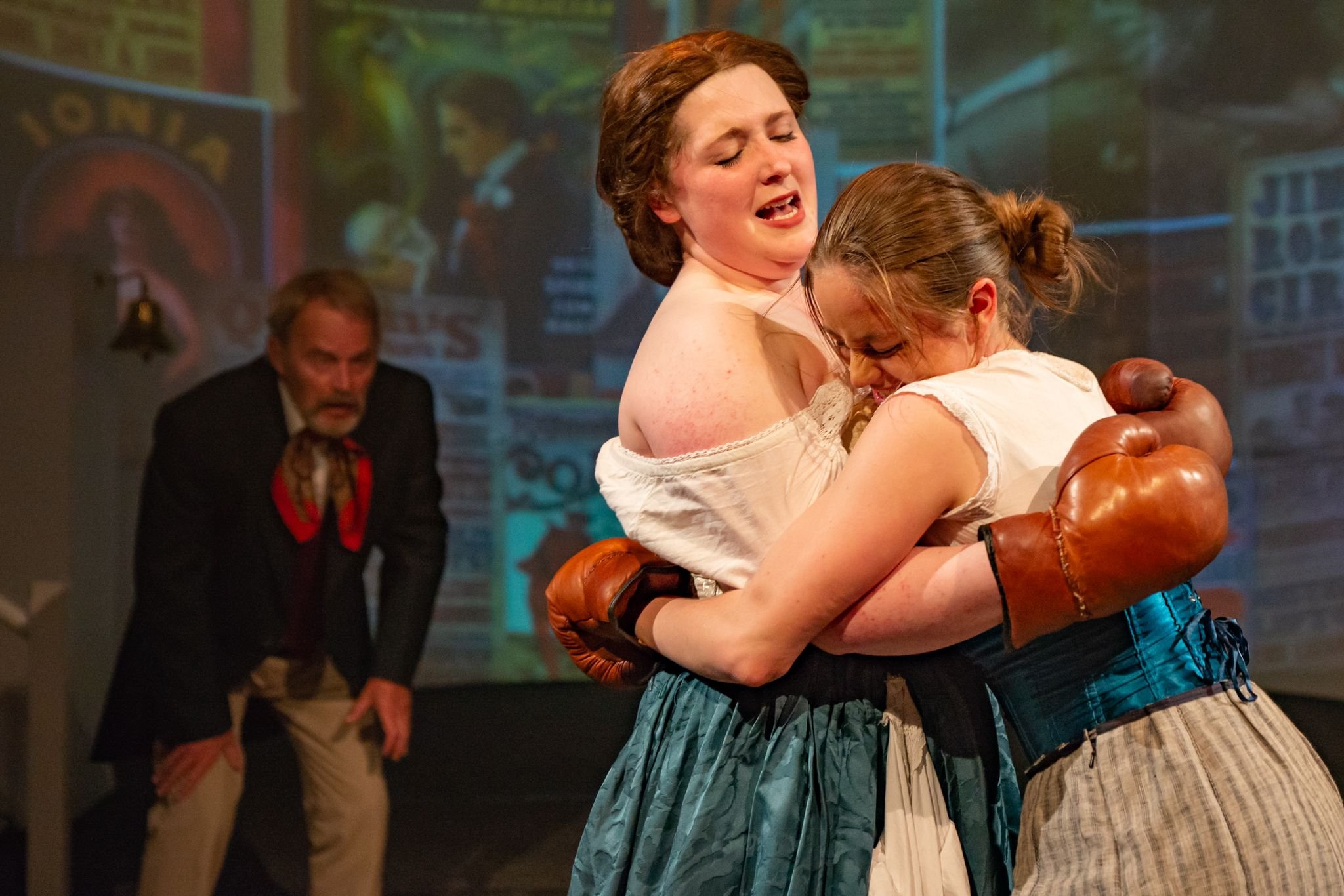
REVIEW - Rebecca Beard, 27/6/22
What is a woman?
In 2022, this question can apparently only be answered by those possessing arcane knowledge. In 1869, when this play is set, society in general and men in particular knew exactly what a woman was. She was wife, mother, betrothed, mother-to-be, daughter, niece, aunt, sister. She was disenfranchised, a disorder, a dreamer, a possession, a punching bag. She was a mirror to reflect a image of man as he wished the world to perceive him. This is a play not just about how men viewed women, but also a play about women knowing what it is to be female and what can be achieved with more than a little ambition.
Brian Hudd's slick direction ensured that the play was pacy but never rushed. The choreography of the fighting was tight and realistic, and the use of a central dais as the boxing ring placed us squarely in a seedy, smoky Islington dive. Fabulous costumes reflected the era as well as the different characters, their social status and their personalities. The make-up effects of the bruising had authenticity and impact. Micro sets using period furniture were laid out in the round in different zones, and effective lighting changes moved us seamlessly from place to place, as did the judicious use of projected backdrops and the subtle use of sound effects and music. I particularly enjoyed the Lambs' house with its gaslight, providing us with period décor as well as an apt metaphor. Gabriel Lamb's final scene was viscerally chilling, as was Anna Lamb's, which sent a shiver down my spine. Matty's final line, “But tomorrow the fight goes on. . .” with the sound of galloping horses' hooves gave us a nod to the events yet to come of 4th June 1913.
The cast members were all consummately professional in their performances and characterisation. I cannot think of a single moment when I wasn't gripped by the action or moved by their depictions. This was helped in no small part by the well-written script which gave us rounded characters with their own stories to tell about the complexities of the human condition, rather than worn stereotypes. The notes in the programme reflected how much each actor had taken the time to explore the back stories and motivations of the characters, which is to be commended. Every single performance from this top-notch cast drew out an emotional response. Is it more powerful to be a victim or to reject victimhood? Is it better to be prepared to defend or to attack? Are we all prisoners of our sex or our class, and can we escape both or neither? The male characters reflected varying degrees of misogyny in keeping with contemporary attitudes. The female characters brought us beauty and hope even in the violent ugliness of the situations they faced. Here indeed was “Civilisation laid bare.”
I left the theatre with more questions than answers. I also left knowing that I had experienced an evening of excellent drama and a story expertly told. The author intended this play to be about not one single protagonist, but four each with intersecting stories, a technical challenge which proved to be a successful narrative structure. But I would suggest that at its heart, this story does have a single protagonist;
Her name is woman.
Review - Harry Mottram 28/06/2022
Theatre Review: The Sweet Science of Bruising, The Mission Theatre, Bath
When the boxer Nicola Adams stepped into the ring to fight Ren Cancan for Olympic Gold in 2012 they did so as athletes. No make-up, blow-dried hair or sexy outfits – but simply as the best physical version of themselves in the ultimate female boxing competition. A contest not for the sexual gratification of men but as part of the Olympic Games to be cheered on by boxing enthusiasts around the world.
It has taken decades if not centuries for women in this country to gain equality in law, sports, voting rights, pay and employment – all pioneered from figures such as Mary Wolfstonecraft’s Vindication of the Rights of Women to the Suffragettes and the likes of Billy Jean King beating Bobby Riggs in the ‘battle of the sexes’, tennis match in 1973.
In Joy Wilkinson’s play The Sweet Science of Bruising at the Mission Theatre in Bath we are taken back to the turn of the 19th century in a Victorian England where women were beginning to assert their voices in society. And yet they were still largely controlled by men. Step forward showman Professor Charlie Sharp played with a fabulously theatricality by Bob Constantine who stages boxing matches and other entertainments for money. He stumbles upon Polly Stokes through her brother the boxer Paul Stokes and the idea of a female boxing contest is born. Tiana James as Polly is superb as the aspiring athlete as she spars, jabs and punches with total commitment. In contrast Callum Marshall as her brother convinces as the nearly man – who is overshadowed by his sibling – straight roles are always harder to pull off and he also achieves this again as he doubles as Captain Danby.
Another actor playing it straight is Alistair Davey who doubles up as several characters with the impossibly prejudiced and demanding Doctor Forster as being particularly memorable. And completing the unreconstructed Victorian gents is the husband of Anna Lamb played by Harry Mason whose eventual comeuppance was enthusiastically cheered on by the audience. That suggested he had successfully become a hate figure for his despicable behaviour towards Anna – much better than a standing ovation.
Two supporting female roles were Aunt George played by an on-form Sara Keane and the maid played by the appropriately subservient Antonia White. That leaves the quartet of female boxers who constrained by their corsets and controlled by men finish the drama in a rousing corset less finale. Tiana James as Polly was brilliant, Francesca McBride as Violet Hunter was exceptional – and has the added natural ingredient of a slight catch of emotion in her voice which helps convince with her speeches. Anna Lamb was played by Olivia Stiles who rather enjoyed repaying her husband’s bad behaviour with her fists and Matty was given another exceptional performance by the talented Ellie Turner. A cast of all the talents worthy of any professional stage.
Perhaps the most memorable aspect of Joy Wilkinson’s 2018 drama staged in a traverse setting at the Mission Theatre was Brian Hudd’s direction. He managed to combine the genteel discussions with the extreme physicality required to convince the audience of boxing’s innate violence. Hudd had a good team with fight choreographer Nicky Wilkins essential in making the boxing look and sound real. Chayenne Rogers-Dixon’s videography and imagery projected onto the back wall of the stage added much period detail and atmosphere while the set was minimal allowing for the action to be unrestrained. My only thought was that some form of carpet of covering on the boards would have helped to dampen the constant footsteps of the entrances and exits – although a minor point in a production that was a five star triumph for the Next Stage Theatre Company.
All women and girls should see this play or read the original novel as it highlights the inequalities of the past but also heralds the breakthroughs that were to come with Votes for Women and Barbara Castle’s 1970 Equal Pay Act to the day Nicola Adams could step into a boxing ring, not wearing a corset, but as an athlete ready to perform as a professional boxer.













